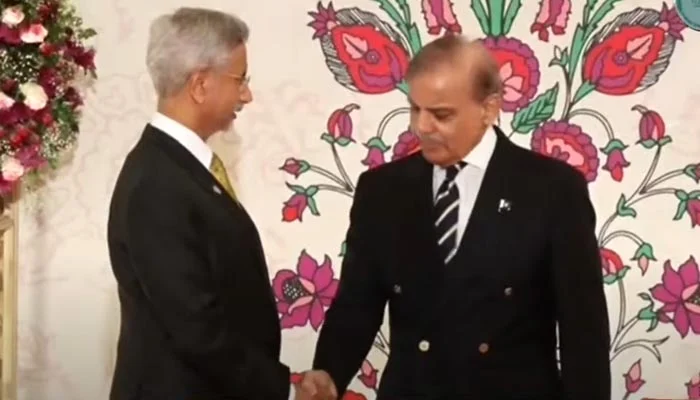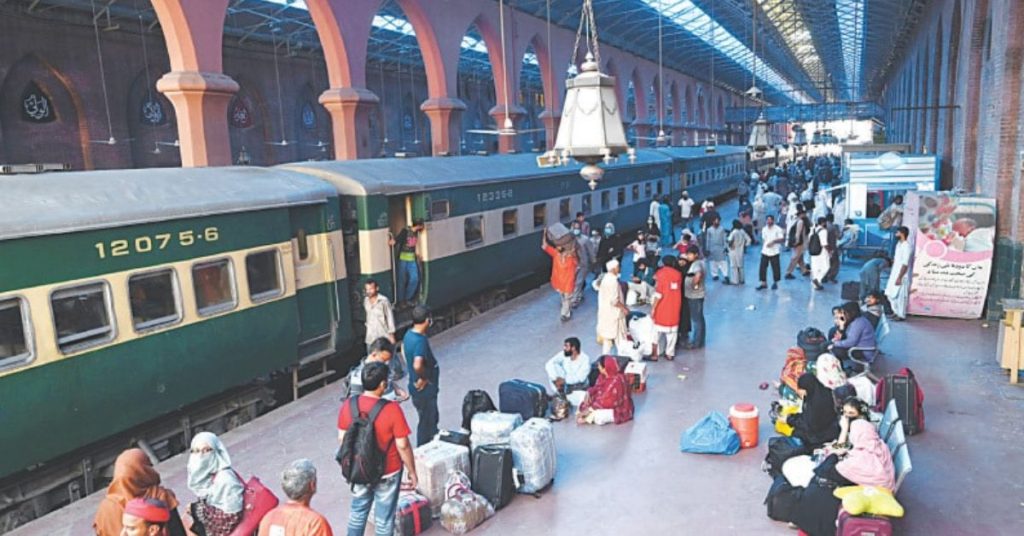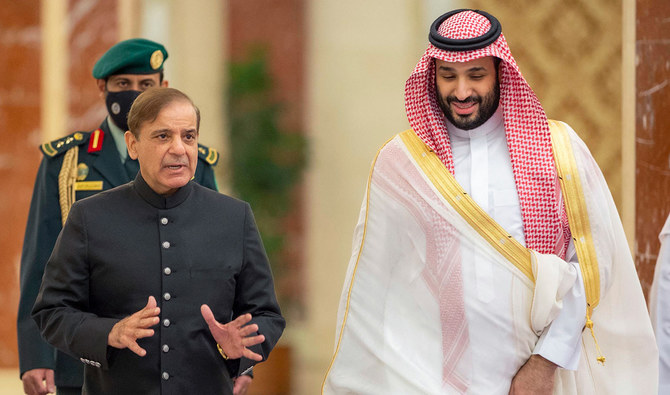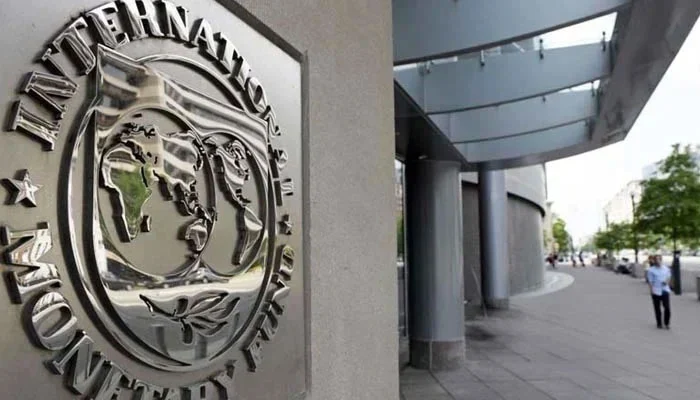Prime Minister Shehbaz Sharif and Indian Foreign Minister Subrahmanyam Jaishankar made headlines as they shook hands during a dinner reception for foreign dignitaries at the 23rd Shanghai Cooperation Organisation (SCO) summit held in Islamabad. The gesture, while symbolically significant, comes amid tense relations between the two nuclear-armed neighbors. Jaishankar’s visit to Pakistan is the first by an Indian foreign minister in nearly a decade, marking a potentially pivotal moment for South Asian diplomacy. However, no bilateral talks are scheduled between the two sides, reflecting the continued strain in relations between the countries.
Jaishankar’s Historic Visit
Earlier in the day, Jaishankar landed at an airbase near Islamabad, around 3:30 PM local time. The Indian minister was greeted with a bouquet of flowers, a gesture symbolizing goodwill, though both nations remain at odds over key issues, particularly the Kashmir dispute. This visit is a landmark moment as it comes almost a decade after the last visit by an Indian foreign minister to Pakistan, underscoring the frosty relationship that has persisted over the years.
Relations between India and Pakistan have remained largely stagnant since 2019, following India’s abrogation of Article 370, which revoked the special status of Indian Illegally Occupied Jammu and Kashmir (IIOJK). Pakistan downgraded diplomatic ties in response, and since then, there have been few high-level exchanges between the two countries. Jaishankar’s presence at the SCO summit, therefore, is being closely watched by international observers, though both sides have confirmed that no bilateral meetings are planned.
The Significance of the SCO Summit
The SCO, a Eurasian political, economic, and security organization, was founded in 2001 by Russia and China, with the goal of fostering regional stability and cooperation. The organization has grown to include eight full members: China, India, Kazakhstan, Kyrgyzstan, Pakistan, Russia, Tajikistan, and Uzbekistan, with Iran recently joining. Sixteen other countries participate as observers or dialogue partners. The SCO is often seen as a counterbalance to Western-led alliances like NATO, making it a significant forum for regional powers seeking to assert their influence.
This year’s summit in Islamabad is particularly important for Pakistan, which has faced a myriad of challenges in recent years, from political instability to economic difficulties. Hosting such a high-profile international event provides the country an opportunity to showcase its leadership role in the region. Prime Minister Shehbaz Sharif, who will chair the summit, has emphasized the importance of cooperation in areas such as trade, economy, and environmental issues.
A Warm Welcome for World Leaders
The Pakistani government has gone to great lengths to ensure the success of the SCO summit. The federal capital, Islamabad, has been adorned with colorful lights, floral decorations, and flags representing SCO member states. A red carpet was rolled out to greet dignitaries as they arrived, symbolizing the significance of the event. Children dressed in traditional attire presented bouquets to foreign leaders, a warm and welcoming gesture that set the tone for the summit.
Security has been a top priority, with strict measures in place to ensure the smooth running of the event. Large contingents of police and paramilitary forces have been deployed across the city, and the government declared a three-day public holiday in Islamabad to minimize disruption. Schools and businesses have been temporarily closed, reflecting the importance of the summit for Pakistan.
Arrival of Key Leaders
The arrival of international leaders began earlier in the day, with Kyrgyzstan’s Chairman of the Cabinet of Ministers Akylbek Japarov landing at Nur Khan Airbase, where he was received by Pakistan’s Petroleum Minister Musadik Malik. Shortly thereafter, Belarusian Prime Minister Roman Golovchenko arrived at Islamabad International Airport and was welcomed by Pakistan’s Minister for Law and Justice, Azam Nazeer Tarar. Tajikistan’s Prime Minister Kohir Rasulzoda and Turkmenistan’s Foreign Minister, Rashid Meredov, were also warmly received by Pakistani officials.
Notably, Chinese Premier Li Qiang arrived in Islamabad a day ahead of the summit, and he was personally welcomed by Prime Minister Shehbaz Sharif. The reception of these leaders underscores the high level of engagement and cooperation among SCO member states, and the participation of top officials from countries like China and Russia highlights the significance of the event.
India-Pakistan Relations: No Signs of Thaw
Despite the cordial gestures and symbolic handshake between Prime Minister Sharif and Foreign Minister Jaishankar, there are no indications of a thaw in relations between India and Pakistan. Both countries have repeatedly stated that no bilateral talks will take place on the sidelines of the SCO summit. The absence of dialogue between the two nations is a reflection of their deep-rooted differences, particularly over the Kashmir issue.
India and Pakistan have a long history of conflict, having fought three wars since their independence from British rule in 1947. While there have been brief periods of thaw, such as during the Lahore Declaration in 1999 and the 2003 ceasefire agreement, relations have remained largely adversarial. The 2019 abrogation of Article 370 further exacerbated tensions, and Pakistan has since called for the international community to intervene in the Kashmir dispute, a demand that India has consistently rejected.
The Future of the SCO and Regional Cooperation
As the SCO summit unfolds in Islamabad, much attention will be focused on the discussions surrounding economic cooperation, security, and regional stability. The SCO has emerged as a significant platform for member states to discuss shared concerns and enhance cooperation in areas such as trade, environment, and security. However, the organization also faces challenges, particularly given the longstanding tensions between some of its key members, such as India and Pakistan.
Prime Minister Shehbaz Sharif, who will assume the chairmanship of the SCO for a one-year period, has expressed optimism about the future of the organization. He has emphasized the importance of collaboration in addressing regional challenges, particularly in the fields of economy and security. However, the success of the SCO in fostering genuine cooperation among its members will depend on their ability to overcome their differences, particularly in the case of India and Pakistan.
Conclusion
The SCO summit in Islamabad is a significant event, not only for Pakistan but for the broader region. While the handshake between Prime Minister Shehbaz Sharif and Indian Foreign Minister Subrahmanyam Jaishankar has captured headlines, the lack of planned bilateral talks reflects the continued tensions between the two countries. As the summit progresses, attention will turn to the broader issues of regional cooperation and security, and the role of the SCO in shaping the future of Eurasian diplomacy.



